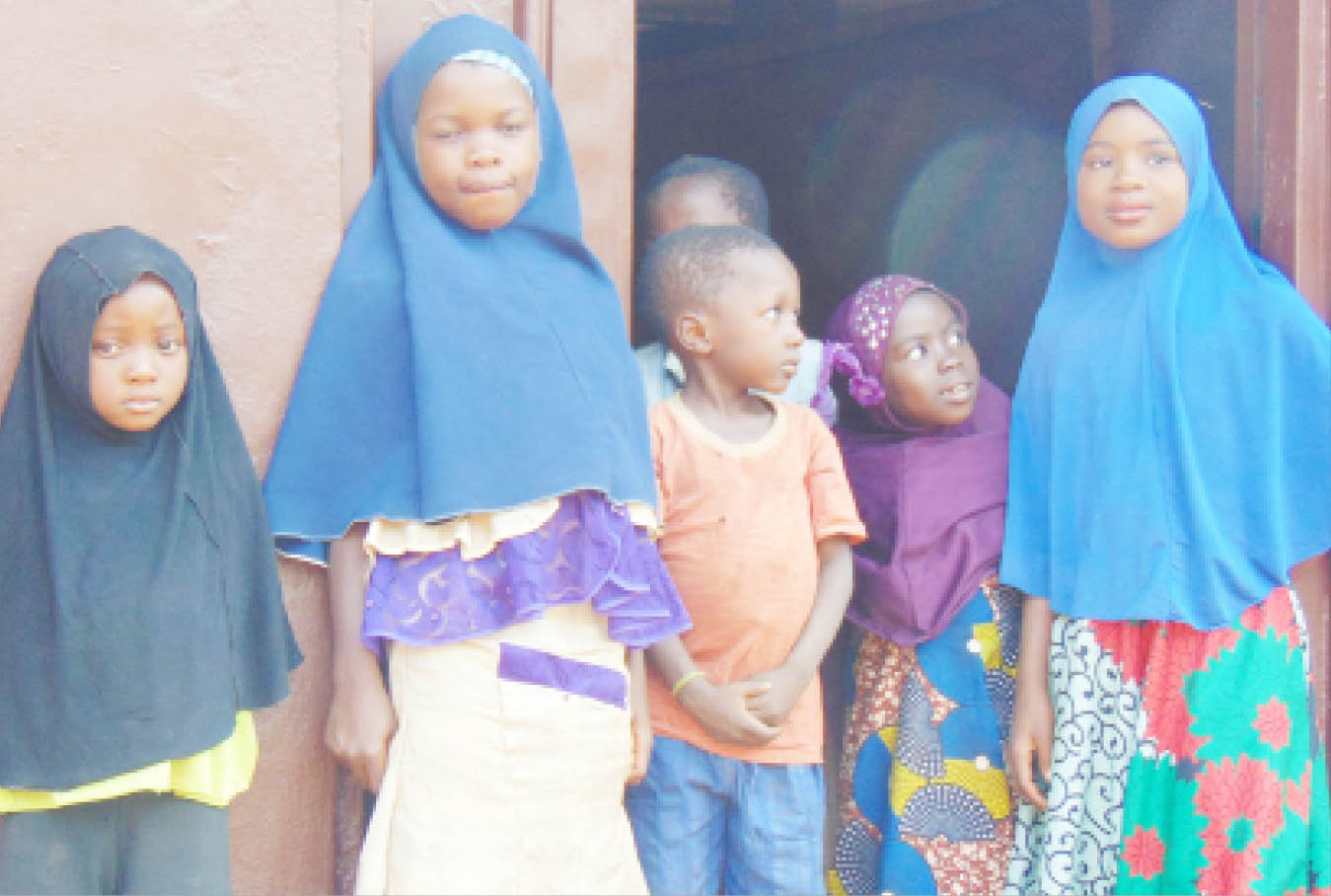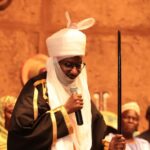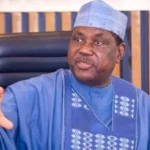Part IV reveals the problem with the name “Igbo Muslim”, lack of unity among the group, and the way forward.
By Tadaferua Ujorha who was in South East, Kaduna, Nasarawa & Niger states
“I don’t think freedom will come for the Igbo Muslims in this century,” says Nafisa Rano (not real name), who is close to the Hausa community in Enugu. Her position may be justified given the many difficulties Igbo Muslims have to endure, including their collective name itself which has been linked to stigmatisation and exclusion.
Name as stigma
Tariq Chukwuma works in Minna, Niger State, and he takes a position against the use of the term Igbo Muslim: “I don’t like the habit of calling any person from the South East Igbo Muslim. It is not good. I want to tell the world that there never existed Arab Muslims or Saudi Muslims. All of us are Muslims. ‘Muslims among the Igbo’ as an expression or to capture the idea is meaningful. The term Igbo Muslim denies us the unity of Islam and it brings stigmatisation and marginalisation. I have been telling them to stop using the expression ‘Igbo Muslim’ because that will be to take us away from the Islamic fold. If it continues, very soon people will be looking at Muslims from the South East as being part of a different religion, and not part of the Muslim Ummah. The expression is used to buy favour. The right expression is ‘Muslims from the South East’ or ‘Muslims among the Igbo’.”
- BREAKING: Many stranded as soldiers ‘take over’ Oshodi in Lagos
- Insecurity: US reiterates commitment to help Nigeria
Kingdom divided into 40 parts
“Divisions among the group is another major setback indicating that Igbo Muslims are not together. They are pretending as if they are united. Theirs is like a kingdom that has been divided into 40 parts. Everybody is on his own and pursues his own interests. I am telling you about Abia in particular. Right from the military era down to the civilian dispensation, we have a lot of fracas and division among the Igbo Muslims,” says Okoro during an interview in Umuahia, providing a metaphor to illustrate the fractured nature of relations among Igbo Muslims.

Poverty divides
The divisions are rooted in poverty and ignorance. Usman opines “Igbo Muslims are a highly divided group, and this is especially because of the economic hardship. In the North, you have many alternatives, many supports. In a local governments where Muslims are predominant, you find out that the chairman is a Muslim; the governor of the state is also a Muslim. All these people can offer assistance. But in my part of the East, none of the office holders is a Muslim. When you have a problem, to who do you go? They see you as a traitor, so when you ask for assistance, nobody helps you, except in rare cases. Poverty plays a serious role in dividing people. The pilgrim’s board as an opportunity divides many Muslims, because everybody wants to be there. If another person is appointed rather than you, this will create a grudge.”
Lack of love
“Since we are not together, we will have challenges. It’s because we do not show love to each other, that we have problems moving together as a group,” says Ibrahim Adike, in Awka, capital of Anambra State, commenting on the lack of harmony among Igbo Muslims.
He continues, “Igbo Muslims make life difficult for themselves. They think that joining Islam will make you rich. Many of us are not educated, so they cannot get into places. If you are educated, and you are seeking for an appointment, they will give it to you. In the pilgrim’s welfare board, somebody will be there in a choice position, but he would not like others to equally get an appointment there. Then there are the opportunistic Muslims giving false information to the governor.”
Pilgrims board only
“There are lots of frustrating stories about how Igbo Muslims are being marginalised and persecuted. They are not given employment in public offices, not employed by the state government. The only government official you will find who is a Muslim, the only post they give Muslims in all the South East states is the Muslim pilgrims welfare board, which cannot take two or three people. When some people talk about the marginalisation of Christians in this country, I laugh. I find it an insult to the collective intelligence of Nigerians, because that is not true. It is the Muslims who are marginalised,” says Professor Akintola, a human rights activist.
‘Narrow down the discrimination’
On the way forward, Dr Ajah argues, “For the sake of stability, peace and progress in the South East, the federal government should come in to compensate the South East Muslims where the state is failing, because it will narrow down the gap and make everybody move at the same pace. There will be no issue of segregation. This is why I believe the Northern Christians are living well in the North, because the federal government is compensating them. The state has done fairly well in the North. In a state like Kaduna, we have seen a Muslim-Christian ticket, as well as in Gombe.”
He also points to Boss Mustapha, Secretary to the Government of the Federation (SGF), a Christian from Adamawa State.
Look inwards
Ukandu suggests “The Igbo Muslims should look inwards into their own structures, on how best to communicate with their people. We need to sensitise our people. I have been a Muslim activist all my life. Yesterday, during a meeting with an Igbo Muslim, we agreed that our people’s perception of us is caused by us. Islam enjoins charity. There are motherless babies’ homes all over the place. By the time we are doing all this, our people will begin to notice our existence, and they will begin to say that we have had an impact. You will be noticed by dint of hard work.”
Heritage
Imam Njoku raises a similar point where he states “The fact that I am a Muslim does not mean I should go and wear a robe with flowing sleeves which belongs to a Hausa man. It’s part of Hausa culture. It’s when you divert from Igbo culture that people start calling you Hausa. When you differentiate yourself and celebrate your culture, people will start seeing you like their own brothers.”
Impact the mind
He concludes “We need unity of purpose to make our people understand us. We need to bring this religion to the grassroots so that people understand what Islam is all about. Somebody who is ignorant will never believe you. By the time you use the language they understand, and impact on their mentality, they will begin to embrace you.”
Ukiwo adds, “Let’s preach the things that unite us, not the things that divide us. Let the imams stop preaching hatred against other people’s religion. All peoples were given their own way of worship. The pastors must stop preaching hatred against other religions.”
Example from North
“The problem we are facing can be solved when Igbo stakeholders come to their senses and realise that together we can build a better Nigeria. If the Igbo stakeholders can emulate the way of thinking of politicians from the North, it will go a long way to solve the problem. For instance, Northern interest is important in their politics irrespective of whether you are a Muslim or a Christian from the North. When that interest is actualised, they will rally round that interest and start to enjoy it,” Amah declares.

Listening governor
In Enugu, Bala has a word of advice: “The Igbo Muslims should work hard and make their impact on the state. The governor of the state has listening ears, and the Igbo Muslims can go to him as father of the state and table their needs. They should as well approach elected representatives in their respective constituencies to get their own share of the dividends of democracy.”
“Already, Governor Hope Uzodinma is introducing so many measures geared towards creating employment, in addition to the ones already created since he came on board a year ago. The only problem, I think, is that so many Muslims, especially the women folk, do not advance their academic career perhaps because of religious inhibitions or ignorance. Muslims should endeavour to advance their education so as to prepare them for future opportunities,” explains Modestus.
Insufficient contact
Reverend Ngwoke identifies a pathway: “There is insufficient contact, insufficient interaction between both faiths. It’s good that we meet as leaders, but it’s insufficient except we are able to help our followers down the line to meet and interact as human beings. Often, we live in isolation, trying to avoid each other. That avoidance does not help, rather it leaves room for suspicion, and all sorts of prejudices to fester. Interaction needs to increase exponentially, that is, social interaction across faiths.” He warns, “Prejudice becomes worrisome if it becomes a warrant for violence, or discrimination or profiling.”
Ngwoke reveals “There is a huge residue of ignorance between Christianity and Islam. This view of ignorance is there, and so what replaces knowledge and understanding of what people are actually doing, becomes all manner of prejudices. There is no group of people who share a common border, who do not harbour some kind of prejudice against the other. The Hausa people have some prejudice against the Igbo. The Igbo return the complement.”
‘Change your thoughts’
Dr Ajah suggests, “The way forward is very simple, it is a matter of resetting the mindset of our political leaders. That’s the only way, to reset, to remove hatred, injustice, from the mind of the political leadership. Justice and equity will solve the problem, and then we should bring a policy that will provide for the rights of the minority Muslims in a Christian dominated area. This is very important. We have never had a representative in the National Assembly. I have been trying to go to the National Assembly, that’s why I contested thrice. We Igbo Muslims were not even invited to any of the constitutional conferences. We have been excluded, even at the state level.”
‘Igbo Muslims should come out’
Rano opines that, “When you don’t come closer, you will be saying Igbo Muslims do not enjoy appointments. The politics is not easy. When you stay in your home, government does not know you, the local government and ward leaders do not know you. Should they start giving you appointments or paying you? It’s not like that. You have to come closer. Go to the ward level, the ward chair will know you, and the local government chair will know you. If there’s anything to share, they will always share to these people. You can’t be in your house and suddenly get an appointment.”
‘It’s the mindset’
Iheakaram, who was once Special Assistant to Governor of Abia State on Pilgrim Matters, adds, “I stand to be corrected. It is very rare to find an indigenous Igbo Muslim being employed in any ministry. Most times these things are not the making of the governors. It’s the mindset of the people which preceded the governors. To an extent the governors are not to be blamed, but they can make an attempt at correction.”
Citizens should organise
Falana (SAN) suggests: “The way forward is for citizens to get organised and defend their own rights. They should contact people in the human rights community and ensure that these matters are taken up. People should send petitions to the national human rights commission, which is a body set up by the government to protect the human rights of Nigerians. Victims of human rights violations should also contact human rights bodies. Victims who have no money to protect their human rights or their rights generally are advised to contact the legal aid council which has branches in all states of the federation. The body is funded by the federal government to protect the rights of all indigent citizens, and an indigent citizen in Nigeria is defined in law to mean any person who earns below the minimum wage of N30,000.”
Suleiman Ukandu: ‘I see a new dawn’
Some years ago he was given the title Enyi Abia which means Elephant of Abia, and there is something elephantine about his rise from the local government level over the years. He is the only Muslim in his family, and the early influence of an uncle, who was a Muslim, stirred his interest in the religion. Today, he is the Commissioner for Lands, Survey and Urban Planning in Abia State, and the only one in the entire South East who hails from the Igbo Muslim community.
He tries to explain the mind of an average Igbo man, and adds that this is key to why an individual is embraced or rejected in Igbo society. Ukandu explains that the Igbo man is interested in the way an individual impacts on his environment: “Our people receive everybody. They don’t care about your religion, but you must show them that you are part and parcel of them. The Igbo man is interested in how you impact on your environment. Its only when you don’t have impact on the society, that you say you have challenges here. My people are magnanimous. Once you have something to offer, once there is impact from you, they will never discriminate against you.”
Ukandu has participated in every political dispensation in Abia State, and he has risen steadily. His words: “One thing is honesty and the ability of the people to trust you. I have been a local government chairman, which is the main grassroots role. I was the first Muslim to be local government chairman in the whole of the South East, and also the first to be in the state executive council.”
He is not happy with fellow Igbo Muslims who are taking on Ohanaeze Ndigbo via social media. Hear him: “I advise them not to do that. You don’t insult them to recognise you. Show capacity, and work towards something that will have impact on Igbo society. I believe Ohanaeze itself can always embrace us. You can’t confront them to embrace you. You only show your ability to help the Igbo nation, for them to embrace you.”
“Igbo Muslims themselves need unity of purpose, so that we can come up with a lot of things which we are championing. I am not also saying that our people do not have their shortcomings. The war has preconditioned their thinking about the Hausa man. These are things that can be gradually changed. The impact of the Igbo Muslim on the society can erode that misconception,” reasons Ukandu.
Ukandu speaks of a new dawn which also demands much hard work by many, in the East as well as other parts of Nigeria. “I also know that we have Muslims who have this idea of a new dawn for the Muslims in the South East, like Zubairu Ugwu, who is a man thinking of a new dawn in the system. The people behind this new dawn are people who are highly educated and are trying to ensure that there is a kind of social harmony between the Muslims and also our brothers here, as well as our brothers in the North. I perceived this new dawn a long time ago. It is only when you begin to see people of like minds that you begin to come up with one or two things. It is because of this new dawn that the group, the South East Muslim organisation was mooted. Our idea was to use it to interface with Muslims in other parts of Nigeria, as well as with Ohanaeze.”

 Join Daily Trust WhatsApp Community For Quick Access To News and Happenings Around You.
Join Daily Trust WhatsApp Community For Quick Access To News and Happenings Around You.


